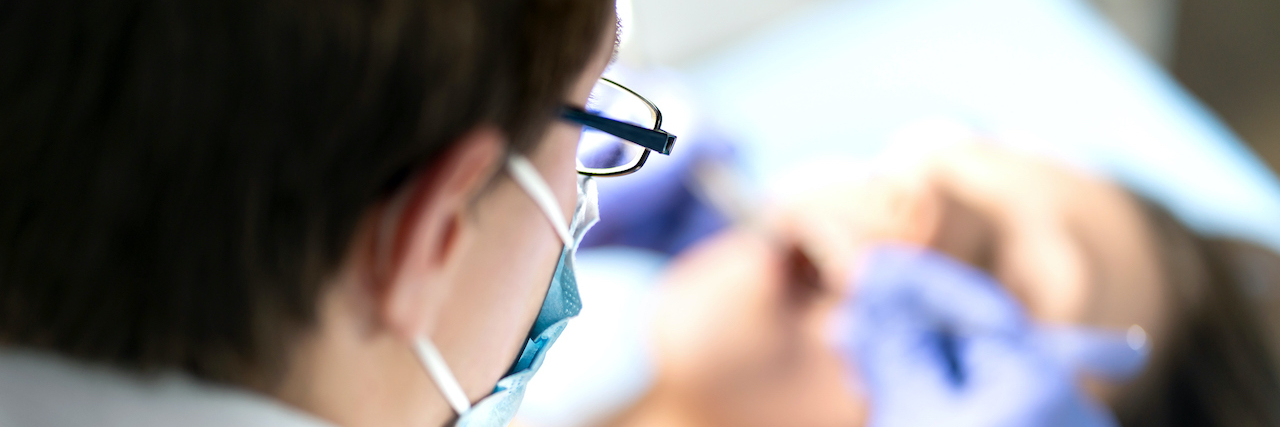Wisdom teeth are a natural part of dental anatomy, but they can cause a debilitating pain experience, triggering headaches and migraine attacks for several people.
The Link Between Wisdom Teeth and Migraine
Wisdom teeth, or third molars, emerge during late adolescence or early adulthood. Their growth can sometimes lead to dental complications, notably impaction or misalignment. These issues might contribute to a migraine experience. Here are some ways wisdom teeth can impact people who are genetically predisposed to migraine:
- Pressure and pain: Impacted or misaligned wisdom teeth exert pressure on surrounding teeth and jaw structures. This pressure can lead to chronic pain and discomfort, potentially triggering migraine episodes.
- Nerve irritation: The nerves around the jaw and teeth are interconnected with cranial nerves. Problems with wisdom teeth can irritate these nerves, possibly leading to migraine attacks.
- Inflammation and infection: Problematic wisdom teeth often lead to inflammation or infection in the mouth, which can exacerbate or trigger migraine. The body’s inflammatory response might indirectly contribute to migraine onset.
- Stress and tension: Dental issues with wisdom teeth often cause undue stress and muscle tension in the jaw and face. This tension can be a significant trigger for migraine attacks, as it affects the temporomandibular joint (TMJ) and associated muscles.
- Oral health and migraine link: Poor oral health, sometimes exacerbated by wisdom teeth problems, is increasingly recognized as a potential factor in migraine development. Chronic dental issues may create conditions conducive to migraine triggers.
While wisdom teeth themselves may not directly cause migraine attacks, the associated pain, stress, and dental complications can be significant contributing factors.
Case Studies and Research Findings
While comprehensive, large-scale studies directly linking wisdom teeth to migraine are limited, several smaller studies and case reports have shed light on this potential connection.
A few individual case reports have documented patients experiencing a significant reduction or complete resolution of migraine symptoms following the removal of impacted wisdom teeth. These cases often involved patients who had a history of chronic migraine, which improved post-extraction.
Some studies have focused on the prevalence of headaches, including migraine, in patients with dental issues like impacted wisdom teeth. These studies found a higher incidence of headache complaints among patients with unresolved dental problems.
Research exploring the broader link between oral health and migraine has suggested that toothaches may trigger migraine attacks by stimulating the trigeminal nerve. This nerve is responsible for facial sensation and functions related to the mouth.
Inflammation caused by dental problems is a key focus, as it can contribute to neurological sensitization, potentially triggering a migraine experience.
Symptoms Indicating Your Wisdom Teeth Could Be Causing Migraine
Symptoms that might suggest a migraine-wisdom teeth connection include:
- Localized pain near the wisdom teeth.
- Increased migraine frequency coinciding with wisdom tooth issues.
- Patient anecdotes often reinforce this connection, though individual experiences vary.
Treatment Options for Wisdom Teeth-Related Migraine
Often, a combination of dental and medical treatments and lifestyle modifications proves most effective in managing migraine related to wisdom teeth.
1. Dental interventions:
- Wisdom tooth extraction: The primary treatment for wisdom teeth-related migraine is extracting the problematic teeth to alleviate pressure and inflammation that might be contributing to migraine symptoms.
- Orthodontic treatments: In some cases, orthodontic solutions like braces or aligners might be recommended to correct misalignments caused by wisdom teeth, which could help reduce migraine occurrences.
2. Migraine-specific medications:
- Triptans and NSAIDs: For immediate migraine relief, medications like triptans and nonsteroidal anti-inflammatory drugs (NSAIDs) can be effective.
- Preventive medications: For people with frequent migraine, doctors might prescribe preventive medications like beta-blockers, anticonvulsants, antidepressants, or gepants.
3. Non-dental pain management:
- Physical therapy: This can help manage pain and tension in the jaw and neck muscles in those with TMJ disorders triggered by dental pain.
- Hot/cold therapy: Works to temporarily relieve pain and reduce migraine severity.
4. Lifestyle and home remedies:
- Stress management: Relaxation practices, hobbies, and even therapy can help in managing stress, which is often a migraine trigger.
- Diet modifications: Avoiding foods that are hard to chew or that trigger migraine, along with focusing on nutrition and hydration, can be beneficial.
5. Alternative therapies:
- Acupuncture: You may find relief from migraine symptoms through acupuncture, which can also help in managing stress and tension.
- Biofeedback: This technique allows you to control certain body functions, like muscle tension.
Regularly visit the dentist to monitor oral health and ensure that any emerging issues with wisdom teeth are addressed promptly.
Frequently Asked Questions
Can everyone with migraine benefit from wisdom teeth removal?
Not necessarily; it’s case-specific and should be evaluated by a health care professional.
Are migraine attacks guaranteed to improve post-wisdom teeth extraction?
Improvement varies; for some, it can be beneficial, while for others, migraine may persist due to other triggers.
Remember that every person’s experience with migraine and dental health is unique.
Getty image by Tero Vesalainen

